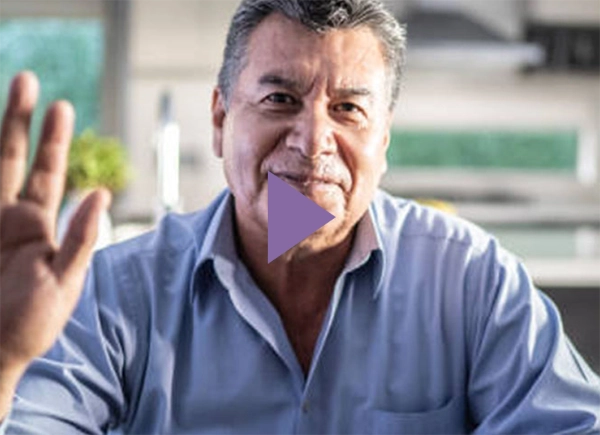
Supporting you on your CRSwNP journey
If there is one thing you can be certain of it’s that you are not alone on your disease and treatment journey.
This section is dedicated to patient stories, shared experiences, and insights. You’ll also find useful information on patient associations and community events.

Voices of CRSwNP
Voices of CRSwNP is a collection of first-hand accounts from people living with CRSwNP offering insight, support, and inspiration. They share their individual challenges and triumphs, as well as their tips for navigating life with CRSwNP.
Whether you’re newly diagnosed or have been living with CRSwNP for a while, these stories offer solidarity and practical advice to help you on your journey to better health and well-being.
Check your symptoms
Our handy symptom checker can help you assess whether your CRSwNP is under control. It's a simple quesitonnaire that asks you about your symptoms and how they're affecting you. You can then share your results with your doctor so you get the right treatment and care for you.
FAQs
If you have been diagnosed with CRSwNP, it’s understandable you will have questions about the severity of your polyps. To better understand your condition, speak with your doctor to determine the right plan for you.
Depending on where you are on your diagnostic and treatment journey, you will have different treatment options available to you. They may include surgery , or drugs (e.g. OTC, steroids and biologics), or a combination of both. Although surgery is not the only option for shrinking the size of your nasal polyps, your doctor will be able to advise on the right plan of action for you.
Because a cause of your nasal polyps may be Type 2 inflammation , it’s unlikely that they will go away on their own. Treatments can help shrink their size, or in some cases they may shrink on their own, but they rarely go away. Visit the treatment and management section to find out about the available treatment options.
Having surgery removes the nasal polyps from your nose. If your smell loss was a result of a blockage caused by nasal polyps, you may start smelling again after the surgery. However, surgery only treats the symptoms of CRSwNP, it does not tackle a cause of the disease that is Type 2 inflammation, so it may not restore your sense of smell.
Surgery only treats the symptoms of CRSwNP, it does not tackle a cause of the disease that is Type 2 inflammation. Even though surgery may have removed the physical blockage caused by your nasal polyps, the underlying inflammation can persist which can stop your sense of smell from returning (partially or fully).
